“Mainline is defined as a set of positive propositions about social order that were held in common from Adam Smith onward, but mainstream economics is a sociological concept related to what is currently fashionable among the scientific elite of the profession.”
“Arguably, there are at least three propositions regarding the nature of human action and the role of institutions that mainline economics critically adopt and advance: (1) there are limits to the benevolence that individuals can rely on and therefore they face cognitive and epistemic limits as they negotiate the social world, but (2) formal and informal institutions guide and direct human activity, and, so (3) social cooperation is possible without central direction. ”
Key Influences
REVIEWS AND COMMENTARY
Living Economics: Yesterday, Today, and Tomorrow
““Living Economics” is a superb book. Peter Boettke’s passion for excellence in teaching and for his subject, mainline economics (the sort of basic economic reasoning that draws on the ideas of a line of thinkers from Adam Smith through the Austrians to people like Jim Buchanan and Elinor Ostrom) shines through on every page. It is vintage Boettke: engaging, witty, and chock full of insight. This book should be put in the hands of every first-year student of economics, if only to show them what they are missing!”
“Economics as it should be, “Living Economics” is a solid book that counters the excessive simulation of modern academic economics while, at the same time, avoiding the temptation to extend application of the logic beyond reasonable limits. Boettke concentrates on the primary purpose of economics, which is to convey an understanding of how, within properly designed institutional constraints, operative markets generate and distribute value without overt conflict.”
““Living Economics” is in many ways a remarkable book. The volume luminously reflects the amazing breadth of Professor Boettke’s reading, and the deep and careful thoughtfulness with which he reads. But the true distinction of this volume consists in more than the profound economic understanding, and wealth of deeply perceptive doctrinal-history observations that fill its pages. Its distinction consists in the delightful circumstances that these riches arise from and express Peter Boettke’s extraordinary intellectual generosity and unmatched intellectual enthusiasm—rare qualities which have enabled him to discover nuggets of valuable theoretical insight in the work of a wide array of economists, many of whom are generally thought to be far away from the Austrian tradition which Boettke himself splendidly represents. Boettke’s prolific pen is dipped, not in the all-too-common ink of professional one-up-manship, but in the inkwell of an earnest, utterly benevolent—and brilliant—scholar, seeking, with all his intellectual integrity, to learn and to understand.”
““Living Economics” is inspired by Boettke’s students and great teachers, such as Boulding and Kirzner, and the central theme that economics has strayed dangerously from a ‘mainline’ emphasis on process and rules, as opposed to outcomes. The mainline sinew is rooted in Adam Smith’s “The Theory of Moral Sentiments” extending to Hayek, Ostrom and other moderns whom Boettke examines with deep understanding of their relevance for our time.”
“Boettke’s passion for economics and the clarity of his vision makes “Living Economics” a pleasure to read. No reader will fail to benefit from his broad and deep insights.”
“I am very pleased with Peter Boettke’s book “Living Economics” which has fully captured the essence of my work and that of others on what good economics is all about and why understanding it is so important.”
“With “Living Economics,” Peter Boettke cements his reputation not only as one of the leading Austrian economists of our time, but as one of the most compelling and engaging communicators of economic ideas. Teachers will derive inspiration from his essays and policy officials will likely gain a little humility regarding their ability to improve upon undesigned economic processes. All readers of this book will be hard pressed not to come away sharing Boettke’s enthusiasm for economics as ‘a deadly serious discipline that tackles vital questions of wealth and poverty, of life and death,’ as well as ‘an amazing framework for thinking about human behavior in the real world, including all human endeavors... that is entertaining and downright fun.’”
“Peter Boettke has spent a career not just as a scholar of economics, but as an educator of both the general public and generations of students. In “Living Economics,” he reflects on the importance of teaching and of his own teachers in spreading the ideas of the mainline of economic thinking from Smith, Say and Wicksteed to Mises, Hayek, Buchanan, Coase, and Friedman, including his own contemporaries. This book is essential reading, especially in a time when the tradition of sound economics Boettke focuses on is under increasing threat by old fallacies and new politicians. The passion for ideas and economic theory that permeates these pages is exactly the inspiration one gets from a great teacher. Peter Boettke is indeed that.”
“Peter Boettke’s book “Living Economics” not only is splendidly characterized by broad erudition, solid analysis, shrewd observation, and expositional clarity, it appears at a propitious moment. We are in a presidential election year, with most political spokespersons relying on embarrassingly superficial and bastardized economic diagnosis and rabble-rousing prescription. And the bulk of professional economists persist in putting precious and arid formalism over substantive content. It is high time—but Professor Boettke thinks that it is not too late—to join the impressive and long-persisting caravan of scholars promoting feel for, sense of, and interest in the contribution which genuine economics can contribute to a free and increasingly prosperous society.”
““Living Economics” by Peter Boettke is aptly titled. It’s all about what he received from his teachers (broadly defined) and what he, in turn, has imparted to his students. Boettke’s deep scholarship, serious reflections and passion for economics come through on every page. Accordingly, unlike most economics prose, “Living Economics” can be safely read before driving. Indeed, “Living Economics” is full of surprises—like an entire chapter on my former professor, Kenneth Boulding. Boettke’s treatment of that great economist hits the nail on the head. The book is well suited for anyone with an interest in economics and finance and should be a required supplemental text for principles of economics courses, as well as courses on the history of economic thought.”
“Peter Boettke’s book “Living Economics” is a spirited, passionate, and exciting tour of free-market economics. I enjoyed every page!”
“This set of essays is Peter Boettke at his best; they are instructive, learned, entertaining and brilliant. Not only is “Living Economics” a must read but a very enjoyable read for today’s economists and social scientists.”
“Reading the wonderful book “Living Economics” by Peter Boettke made me start loving economics, and I am sure it will inspire many more readers to do the same. It makes me optimistic for the return of real economics.”
“Peter Boettke’s insightful and wide-ranging book “Living Economics” is not simply about teaching economics: it is a joyous exercise in teaching us through the great teachers of economics. This volume shows us how the mainline of economic teaching from Smith through Hayek to contemporary thinkers such as Buchanan and Ostrom have analyzed the core features of economic cooperation while recognizing the cognitive limits of economic and political actors, and indeed of economic analysis itself. All students of the moral sciences need to learn Boettke’s master lesson: ‘We have to understand man as a fallible yet capable chooser, who lives within an institutional framework that is historically contingent.’”
“Through his scholarly and entrepreneurial work, Peter Boettke has transformed a sometimes hostile, sometimes neutral, field of economics into a thoroughgoing revival of Austrian ideas in the worlds of thought and action that is in full flower today. “Living Economics” reveals how Boettke has been the energetic catalyst so pivotal to this transformation. This book provides wonderful insight into how this future has been brought about.”
“Loaded with content well worth reading and carefully arrayed gems from history of thought, Peter Boettke’s “Living Economics” is literally his personal statement about living with and living through economics. But be careful as you read. Boettke’s love affair with economics is contagious. You will find yourself cheering for more.”
“There exist noteworthy works that survey economic thought and others that provide insights into current economic challenges. This highly unusual book does both at once and very successfully. Interpreting and contrasting major contributions to economics in clear prose, it also identifies the policy implications of key economic insights. Insightful, instructive, and also entertaining throughout, Peter Boettke’s “Living Economics” can be read profitably by academics, policy makers, students, and a wide range of other constituencies concerned about our economic institutions.”
“The truly wonderful book “Living Economics” shows students and scholars alike why Peter Boettke is one of the most original scholars and teachers of his generation. Boettke’s goal is to form minds young and old in the way that his was formed, and thus the lessons of this book come from across the intellectual spectrum. Boettke’s masterful ability to deftly meld a variety of approaches to economics into a lens through which to view the world shows the possibilities of economics analysis at a time when its status is much in question and breathes new life into the dismal science.”
“We have here a fascinating reflection that stems from more than a quarter century of Peter Boettke’s scholarship and masterful teaching. One cannot close this book without a renewed appreciation of the core insights of economics that run from Adam Smith to F.A. Hayek to James Buchanan and others. On page after page “Living Economics” bubbles over with enthusiasm, as Boettke shows that our tradition is intellectually rich, robust and exciting to learn. The economic way of thinking, properly understood, studies real people. And Boettke clearly shows that our everyday lives are at stake if the lessons of economics continue to be misunderstood by pundits, politicians and the bulk of a misguided economics profession.”
““Living Economics” is a treasure trove of ideas for anyone interested in communicating economics to students and the broader public. The author’s enthusiasm is evident throughout. Professor Peter Boettke shows us what he learned from some of the great figures in economics and what, from their work, he has been able to distill and elaborate as his own teaching message. At the end of the day, this book is more than about teaching economics, it is about Boettke’s ‘love affair’ with the subject.”
““Living Economics” is a fascinating discussion of the increasingly-acknowledged-as-important field of Austrian economics and its main contributors. But more important is Peter Boettke’s lessons not only on the importance of teaching about Austrian economics but how economics should be taught generally. “Living Economics” makes a useful tool for both students and their teachers.”
“In “Living Economics,” Peter Boettke has written a compelling book that is part intellectual autobiography and part a discussion on what economics is, and how it should be taught. Professor Boettke’s love of economics comes through on every page, and the book is filled with insights on the nature of economics and how it should be presented to students. His sympathy toward free-market ideas and the Austrian school of economics comes through clearly, and much of the book is devoted to discussing the ideas and work of major scholars who have influenced him. The book is delightful to read, and will appeal to both students and teachers of economics.”
“In “Living Economics,” Boettke expresses well the ‘joy of economics,’ the expansion of one’s own understanding of the process of social coordination we all benefit from, and the pure pleasure in communicating that understanding to students and others. He draws upon a deep well of teaching and guiding both undergraduate and graduate students and his lively advocacy of ‘mainline economics,’ as opposed to ‘mainstream economics,’ makes for an important read for anyone seeking to understand what economics is really all about.”
“The new authors have made a serious and successful attempt to maintain the comfortable narrative style of Heyne's previous editions.” -Joseph Fuhrig (Golden Gate University)
“It is an excellent introduction to economics text that explains not only some of the technical aspects of economics… but also the social science dimensions of the discipline…” -Mark McNeil (Irvine Valley College)
“The strengths of this text are its intellectual approach—it seems to be written as a whole and not just a few principles chapters thrown together…”-James Swofford (University of Southern Alabama)
“The Legacy of Ludwig von Mises will prove useful to both the expert in so-called Austrian economics as well as the novice who wonders what all the fuss is about. . . Boettke and Leeson have performed a valuable service in the history of economic thought, by providing a collection that will benefit both expert and novice.” -Robert P. Murphy in the Journal of the History of Economic Thought
“The profoundly original Ludwig von Mises made pioneering contributions to our understanding of the modern economy in a number of areas: the problem of economic calculation under socialism, the dynamics of the mixed economy, the ordering role of market forces in banking and finance, and the monetary-shock theory of the business cycle. Editors Peter Boettke and Peter Leeson have usefully brought together a wide-ranging collection of papers – including some surprising choices – to exemplify fruitful research along Misesian lines. These volumes will help to give to Mises’s insights the greater prominence among economists that they richly deserve." -Lawrence H. White (George Mason University)
“The first edition of this book, published in 1999, has deeply influenced my thinking on some of the most complex economic questions of our time, and this revised and updated edition, released [in 2012], is already proving to be at least as intellectually engaging. Should economic thought continue its trajectory away from the excessively simplistic foundations of modern neoclassical economics, there will be little doubt that books such as Institutional Economics will be shown to have played a significant role in the revitalisation of economics.” -Julie Novak in Institute of Public Affairs
“The most important thing about this book is that it is written by people who for the most part weren't born during the first revival (1974). It is not an attempted resuscitation nor a history of thought. It sets out the main propositions of the *current* research agenda of the Austrian school, demonstrates and cites examples of *contemporary* work, and reflects a generation of scholars that are receiving widespread *mainstream* credibility. If Lin Ostrom winning the Nobel Prize enticed some Austrians to come out of the closet and lose a few inhibitions, so should this!” -Anthony J. Evans (ESCP Europe)
“Peter J. Boettke brings together ten third-generation 'modern' Austrian economists to outline ten core propositions of the Austrian school of economics.... While the core tenets of Austrian economics are certainly open to debate, Boettke meets the challenge and the propositions provide the reader with his particular view of the discipline.” -David Howden (St. Louis University) in Erasmus Journal for Philosophy and Economics
“…the book is a very valuable contribution to understanding the foundations of an important school in institutional economics and highly recommended to students who are already rather familiar with the world of institutions and interested in more fundamental issues concerning modelling actors in relation to the structures surrounding them.” -John Groenewegen (Delft University of Technology) in Erasmus Journal for Philosophy and Economics
“The book can be recommended both to those who know something about Austrian economics already, and to those who know nothing.” -David Simpson in Economic Affairs
“Mr Boettke’s very readable compendium consists of short articles by mostly young scholars, selected to illustrate the diversity and fecundity of modern Austrian economics.” -Michael Prowse in The Financial Times
“Well-written, the book will serve as an excellent resource for students and faculty of Austrian economics and any other schools whose primary goal is to educate their followers in Austrian economic thinking. Policy makers involved in economic theorizing, analyses, and applications -- well as government leaders and other politicians -- will benefit from understanding the foundational principles and concerns of Austrian economics."- CHOICE
Hayek Program Podcast
On this episode of the Hayek Program Podcast we revisit a lecture by Hayek Program director Peter Boettke, in which he invites listeners on an intellectual exploration of the potential applications of the mainline economic tradition. Boettke discusses the continuing relevance of the Austrian school of economics as a progressive and enduring research program in contemporary economics and political economy and encourages young economists to engage the economic profession with a humble sense of curiosity and intrigue.
How did Roger Koppl become interested in economics? How did scholars such as Israel Kirzner and William Baumol influence his work throughout his career? What opportunities are there for future study within the realm of complex systems theory and computability in Austrian economics? On this episode, Professor Roger Koppl discusses with Hayek Program Director Peter Boettke.
What is the impact of James M. Buchanan's contributions to political economic thought and the fields of law, ethics, and political science? How can his body of work be applied to explore the present and future relevance of his scholarly contributions and insights?
Collectively, the lectures over the past few weeks explore the continuing relevance of the Austrian school of economics as a progressive and enduring research program in contemporary economics and political economy. On this episode of the Hayek Program Podcast, Hayek Program Director Peter Boettke gives an overview of the previous lectures and invites listeners on an intellectual exploration of the potential applications of the mainline economic tradition.
Hayek Program Senior Fellow Jayme Lemke sat down with Hayek Program Director Peter Boettke to discuss the commonalities among the three approaches to understanding the social world discussed previously in this series: Austrian economics, public choice economics, and the Bloomington School’s multiple-methods, real-world approach to institutional analysis.
Hayek Program Senior Fellow Jayme Lemke sat down with Hayek Program Director Peter Boettke to discuss the Bloomington School of Political Economy in this wide-ranging interview. They discuss the Ostroms’ approach to understanding self-governing societies, their use of multiple methodologies, and the continuing relevance of the Bloomington School to current research in political economy.
Videos
Part II on Bloomington School of Political Economy
Part III on Bloomington School of Political Economy
A Tribute to Paul Heyne (1931-2000)
by Douglass North
(From the archive of Douglass North)
On a rare occasion, if you are fortunate, you will run across an individual who lives and acts upon the ideals that we profess. I was fortunate. Paul Heyne came into my life in 1975. Out of the blue, he sent me a letter that began as follows:
I’m going to be moving to Seattle at the end of the current academic year and I’d like to find a college or university in the city at which I could be an economics teacher. Those are two separate decisions. I’ll be moving to Seattle whether or not I find a position in an economics department there. But teaching and especially the teaching of introductory economics is one of the things I think I do well and something I would continue doing.
I had assumed the chairmanship of the department of economics at the University of Washington in 1967 and set out to make it one of the best in the country. My definition of best included not only scholarly eminence, which we were in the process of achieving, but the effective, caring teaching of the multitude of undergraduates that populated a large state university. The University played lip service to good teaching but the reward system was geared to publication and most, but not all, of my colleagues acted accordingly. Shortly after assuming the chairmanship, I decided I should go back to teaching the introductory course to see just what we did. I was dismayed to find that it had not changed an iota form my undergraduate days. The textbooks were full of the formal jargon of economic theory elucidating the perfectly competitive model, imperfect competition a la Chamberlin and Joan Robinson, and monopoly replete with all the marginal analysis and appropriate graphs. Following the tradition, I was in the midst or my fourth lecture on perfect competition illustrating it with the case of American agriculture when a student in the back of the auditorium noisily took exception to what I was saying. I thought I would teach him a lesson and invited him the address the class, explaining himself. He did, describing effectively the myriad of price supports, milk marketing acts, sugar production subsidies, etc. that pervaded agriculture and made it far from the competitive model. I slunk back to my office and began a search for a more effect teaching program. I was some year into an attempt when Paul’s letter arrived. I wrote back asking what he would like to do as a teacher. His reply, in part:
I would like to teach at a college whose faculty was enthusiastically committed to providing a liberal education for undergraduates. I would like to be a member of a faculty that was continuously asking about the nature and significance of liberal education and looking critically at its own efforts to provide one. The members of such a faculty would use their own disciplines as bases for venturing into other disciplines and not as castles within which to enjoy untroubled lives. In the college of my fantasies, there would be some core requirements for all to satisfy; not so much because anyone can specify particular knowledge that a liberally educated person must have as because a liberal arts college requires some common core if it wants to be a lively intellectual community. Mastery of the core would be expected first of all of faculty members. (I’ve often thought how much more profitable faculty curriculum discussions would be if every faculty member knew that he would be taking all courses imposed on undergraduates and that his colleagues would be evaluating any course he himself wanted to offer in the common core.)
Paul left a tenured professorship at Southern Methodist university to come to Washington as a non-tenured lecturer and he retained that untenured rank until he died in March 2000. I am not sure we lived up to Paul’s fantasies of the ideal faculty; I know we didn’t but he did change the way economics was taught at the University; revamping the undergraduate program, overhauling the introductory course, and meeting regularly with the graduate teaching assistant to improve the quality of their teaching. But much more than that, Paul was a continuing inspiration for those of us who took seriously a quality liberal education for undergraduates.
The Economic Way of Thinking embodies Paul’s approach to economics and to a liberal education. It was a radical change from the textbooks of the time. Its focus on the problems of a society and the way in which economic reasoning could shed light on those problems made economics interesting to the students. More than that, the book recognized that the strength of economics was precisely described in the title of the book – as a way of thinking. Comprehending that way of thinking was, and continues to be, the revolutionary contribution of economics to the social sciences and to a better understanding of the world around us.
I open the seminar for freshmen that I teach every fall with a lecture on Paul, the human being – his Seminary education, ordination, the way he got drawn into economics, and the way he combined a rigorous economics (and make no mistake about it, Paul’s economics is rigorous) with a broad and active concern for community and social welfare. He believed in individual freedom and the demands that that freedom imposed on responsible human beings. And he and his wife, Julie, lived their lives accordingly.

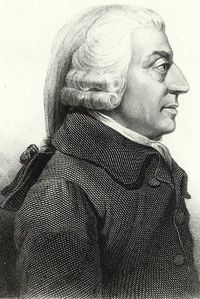

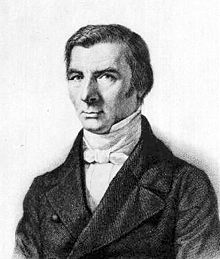
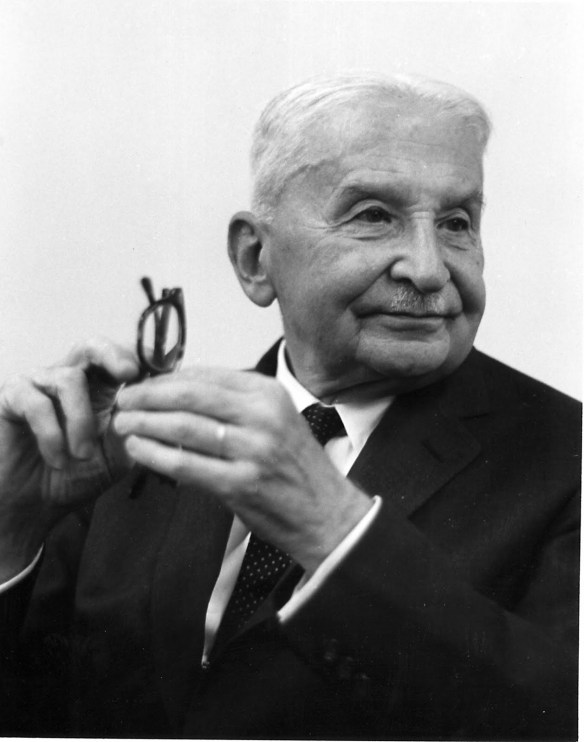
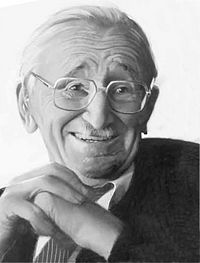
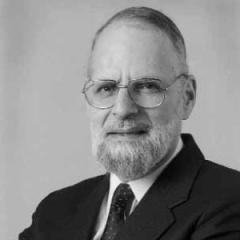

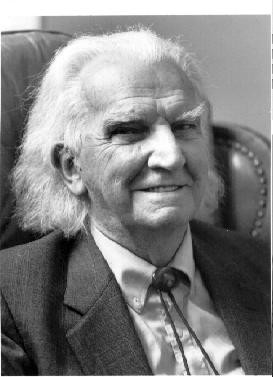
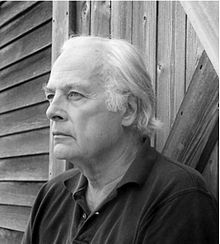

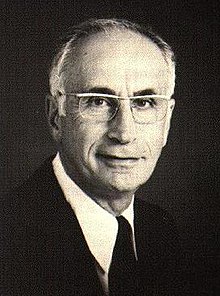

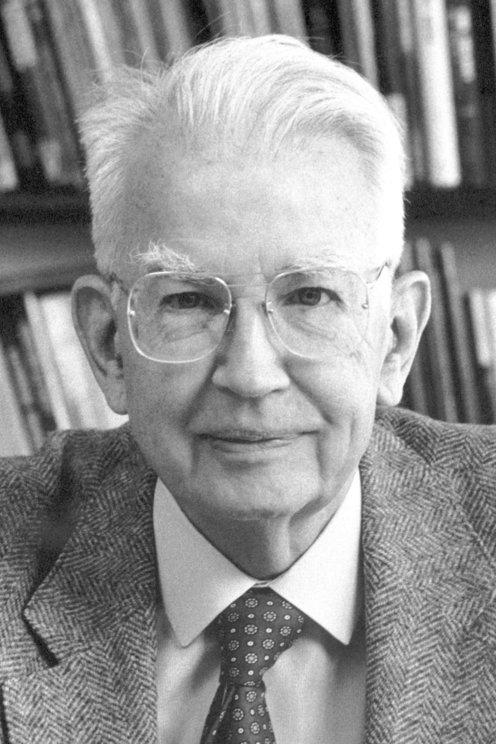
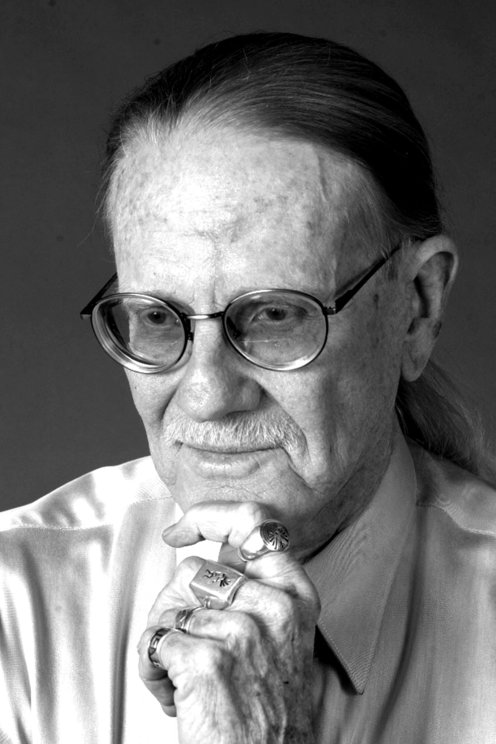

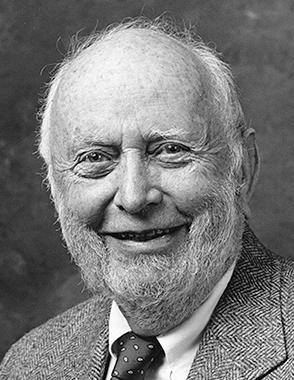
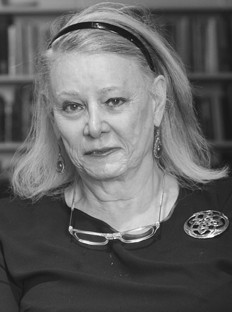

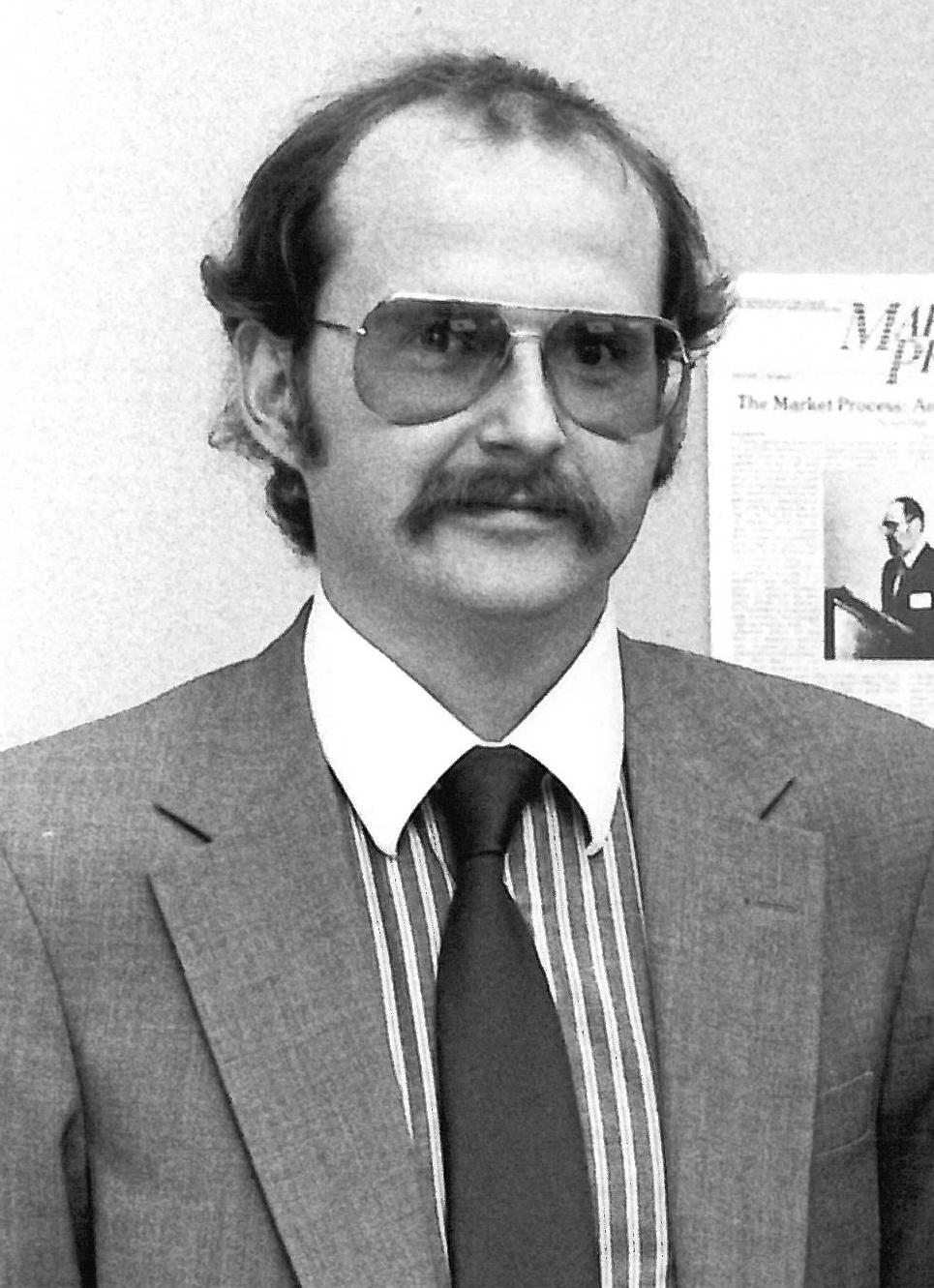
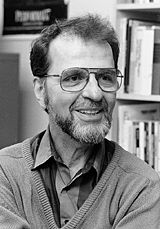
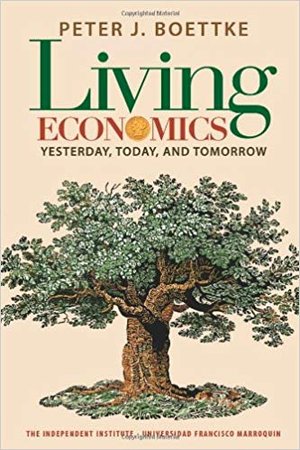
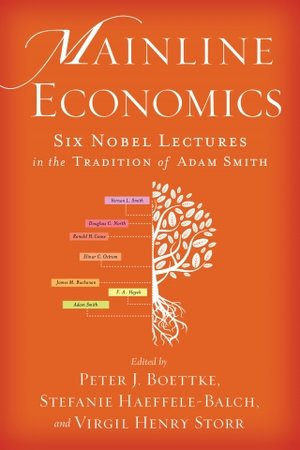
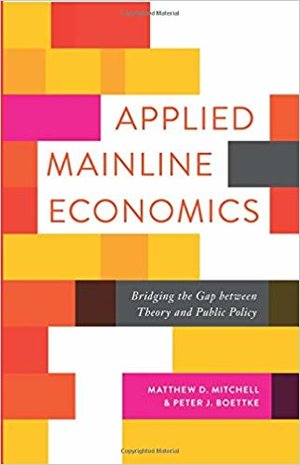


![“The first edition of this book, published in 1999, has deeply influenced my thinking on some of the most complex economic questions of our time, and this revised and updated edition, released [in 2012], is already proving to be at least as intellec…](https://images.squarespace-cdn.com/content/v1/5bc7ff018d9740726759a7c1/1543777113377-1XW7SQVRO8OZ6QO8CBR6/cache_4104616235.jpg)



